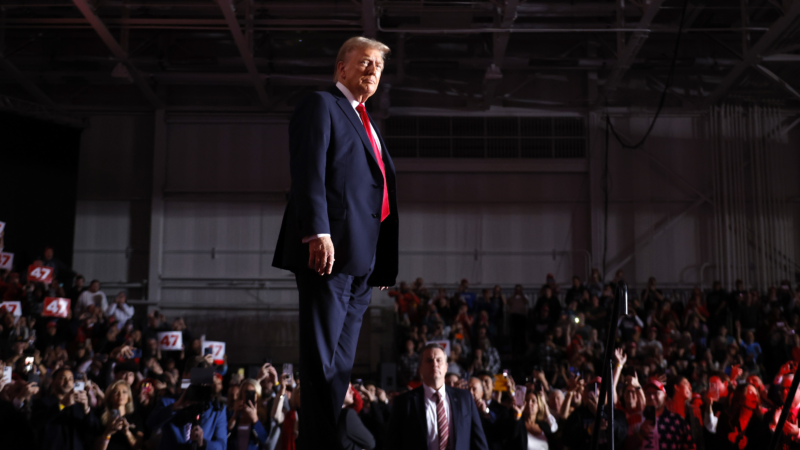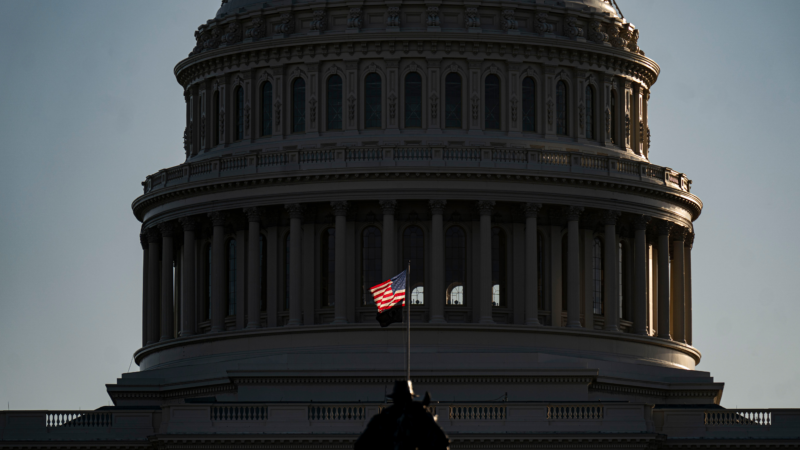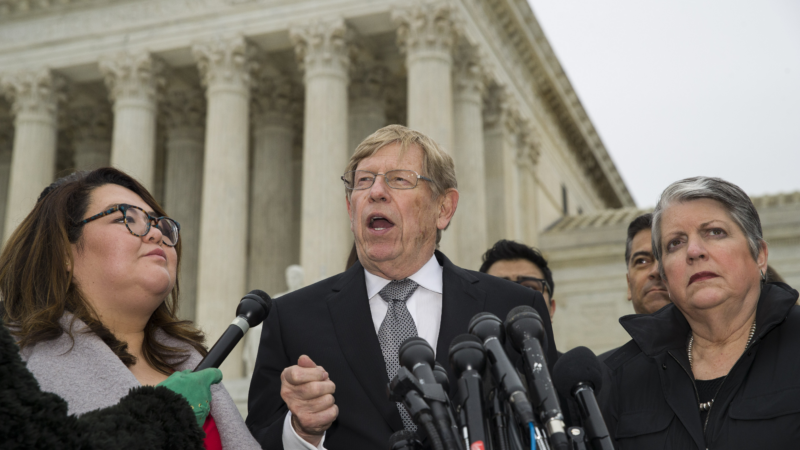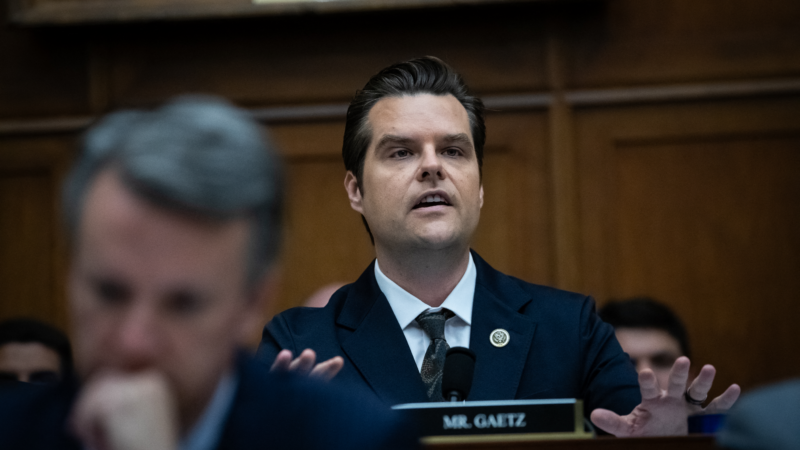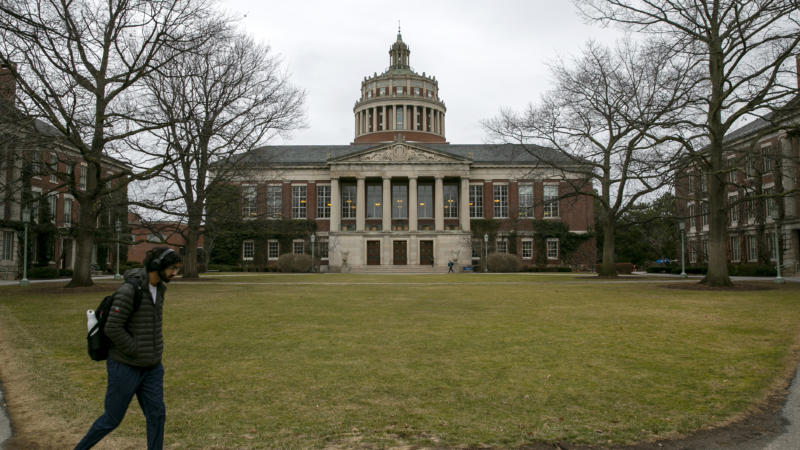The transition to the Trump administration is underway. But it’s already behind
The election is over, and the complicated two-month sprint to hand over the levers of power from the Biden administration to the Trump administration is underway. But there are already signs that things are not on track.
President-elect Donald Trump’s transition team has not yet signed official legal documents with the General Services Administration and White House — something that is supposed to happen by Oct. 1.
Under the Presidential Transition Act, both presidential campaigns get access to everything from government email accounts and office space to assistance with background checks and insight into the workings of government agencies — a running start to be ready to take the reins of power immediately after inauguration.
The agreements come with ethics requirements, including safeguards against conflicts of interest and fundraising limits.
Trump’s team has blown past the deadline to sign the agreements, saying they are still negotiating the terms.
Trump will still be sworn in on Jan. 20 regardless of whether his transition team takes up the GSA on its transition services.
But Max Stier, executive director of the Partnership for Public Service — a non-partisan group that has assisted campaigns in past transitions — told reporters on Friday that the new administration won’t “be ready to take over our government in a way that is safe for all of us” unless the agreements happen. “It is simply not possible,” he said.
“Even if they manage to get these agreements in now, they’re late in getting those done,” Stier said.
Transitions are a huge management challenge
There are some 4,000 political positions to fill in any new administration, approximately 1,200 of them requiring Senate confirmation.
That makes transitions a huge management challenge, said Clay Johnson, who led George W. Bush’s transition in 2000. That transition was delayed by the Florida recount.
“It was just so hard and unbelievable. People were crying and were losing sleep and so forth and so on,” said Johnson. “An incredible amount has to happen in a short period of time.”
During a transition, people are angling for jobs, working connections to get in. “The most important thing to pick the right people is to figure out what is the picture of success that you want to realize on behalf of the country,” said Johnson.
A campaign adviser said the jockeying for jobs in the second Trump administration has already been intense. Loyalty to Trump and a desire to disrupt Washington are top qualifications this time.
Trump’s transition team has downplayed the agreements
Trump transition co-chair Howard Lutnick has downplayed the importance of the documents.
“We’ll probably get them signed,” Lutnick said in an interview with CNN a week before the election. “These are not important issues. This is sort of a low-grade issue.”
Stier said he’s worried Trump is about to repeat the history of what is widely seen as one of the worst transitions of modern times: Trump’s last transition.

In 2016, Trump’s team signed versions of the same documents and former New Jersey Governor Chris Christie, who was charged with leading the transition, spent months crafting plans, vetting potential staff and working cooperatively with the outgoing Obama administration to make sure Trump would have what he needed on day one.
And then, two days after the election, Christie was fired by Trump adviser Steve Bannon. Not only was Christie out, but he said, so were all the plans.
“They had won a race that most people didn’t think they could win,” Christie told the Transition Lab podcast. “And now they thought, and now we’re going to run a transition in an unconventional way and watch everybody react to that.”
Trump’s first transition was chaotic
After his 2016 victory, with cameras trained on the elevators in the lobby of Trump Tower in New York, the president-elect put on a show, parading candidates through. And while it made for decent television, it turns out it wasn’t the most successful way to staff an administration.
Trump picked a whole lot of people who just weren’t a good fit, like Rex Tillerson as Secretary of State, and former Gen. James Mattis as Defense Secretary.
And because Trump’s team threw out months of planning, they were left with a lot of Obama holdovers in high-ranking acting positions when Trump took office.
Christie told the Transition Lab podcast that the Trump administration lost precious time to enact his agenda.
“You had people there who were hostile to the president personally and hostile to his agenda that he had just been elected on, and then he would wonder why he couldn’t get things done,” said Christie.
Lutkin, who is heading up the search for personnel, said the Trump team learned from those mistakes.
“We’ve got so many candidates, we are so set up,” Lutkin told CNN. “I feel great. And it’s completely different from what it was like in 2016.”
Transcript:
A MARTÍNEZ, HOST:
Days after Donald Trump declared victory, the negotiations to work out a handoff of the government are underway. Yesterday at the White House, President Biden said he’s been in touch with the president-elect.
(SOUNDBITE OF ARCHIVED RECORDING)
PRESIDENT JOE BIDEN: And I assured him that I would direct my entire administration to work with his team to ensure a peaceful and orderly transition. That’s what the American people deserve.
MARTÍNEZ: There are already questions, though, about whether Trump’s second transition is on track. Here’s NPR’s senior White House correspondent, Tamara Keith.
TAMARA KEITH, BYLINE: A week before Trump won, the co-chair of his transition, Howard Lutnick, projected confidence in an interview with CNN.
(SOUNDBITE OF ARCHIVED RECORDING)
HOWARD LUTNICK: We are ready for the transition for Trump-Vance. We are so ready.
KEITH: He’s heading up the search for people to fill positions in the new Trump administration.
(SOUNDBITE OF ARCHIVED RECORDING)
LUTNICK: We’ve got so many candidates. We are so set up. I feel great, and it is completely different than it was like in 2016.
KEITH: In 2016, former New Jersey Governor Chris Christie spent months building a transition plan for Trump, working cooperatively with the outgoing Obama administration. And then, as he told the “Transition Lab” podcast, two days after the election, Christie was fired by Trump adviser Steve Bannon.
(SOUNDBITE OF ARCHIVED RECORDING)
CHRIS CHRISTIE: And I said, are you kidding me? And he said, no, no. Vice President Pence is now going to be the chair of the transition, and you’re out.
KEITH: Not only was Christie out, but, he said, so were all the plans.
(SOUNDBITE OF ARCHIVED RECORDING)
CHRISTIE: They had won a race that most people didn’t think they could win. And now they thought, now we’re going to run a transition in an unconventional way and watch everybody, you know, react to that.
KEITH: With cameras trained on the elevators in the lobby of Trump Tower in New York, the president-elect put on a show.
(SOUNDBITE OF ARCHIVED RECORDING)
DONALD TRUMP: We’ve got some great people coming in today. You’ll see them.
KEITH: In the end, Trump picked a whole lot of people who just weren’t a good fit – Rex Tillerson as secretary of state, former General James Mattis as defense secretary. The list of hiring misses in 2016 is a long one. And because Trump’s team threw out months of planning, they were left with a lot of Obama holdovers in high-ranking acting positions when Trump took office. On the podcast, Christie said the Trump administration never fully recovered from its rough start.
(SOUNDBITE OF ARCHIVED RECORDING)
CHRISTIE: So you had people there who were hostile to the president personally and hostile to his agenda that he had just been elected on. And then he would wonder why he couldn’t get things done.
KEITH: Clay Johnson led George W. Bush’s transition in the year 2000. He says transitions are a huge management challenge.
CLAY JOHNSON: It was just so hard and unbelievable. You know, people were crying and were losing sleep and so forth and so on. But a lot has to happen. An incredible amount has to happen in a very short period of time.
KEITH: Johnson says there are thousands of jobs to fill and untold numbers of people working their connections to get in. But he tried to tune out the noise.
JOHNSON: The most important thing to pick the right people is to figure out what is the picture of success that you aspire to realize on behalf of the country.
KEITH: Trump announced late yesterday that he’d picked his campaign manager, Susie Wiles, to be his White House chief of staff. A campaign adviser says the jockeying for jobs in the administration has already gotten intense. Loyalty to Trump and a desire to disrupt Washington are top qualifications this time. But the Trump transition is already disrupting Washington by failing to sign two formal documents that would give them access to everything from government email addresses to detailed information about agency operations.
MAX STIER: It has not happened, and they are late.
KEITH: Max Stier heads the Partnership for Public Service, which has assisted past transitions. He says this delay sends a very bad signal and could mean Trump is about to repeat history.
STIER: The Trump team did not understand the process or the importance of understanding that process and did not respect that process and paid a real price. And I fear that we might see something similar again.
KEITH: A Trump campaign spokesman tells NPR the transition team is still having conversations about the documents, and, quote, “We will update you once a decision is made.”
Tamara Keith, NPR News.
Republicans retain their hold of the House, clinching full control of Congress
Republicans have officially won a full trifecta of power in Washington, D.C., following GOP victories in several key U.S. House contests.
Remembering Ted Olson, a titan of the law
Ted Olson, the Bush-era solicitor general, has died at age 84. He was a towering figure in the legal profession who argued 65 cases at the Supreme Court as solicitor general and as a private lawyer.
The Gulf States Newsroom is hiring a Regional Managing Editor
The Gulf States Newsroom is seeking an innovative leader to guide our public media collaboration to new heights.
‘I was shocked’: Lawmakers react to Gaetz pick to be Trump’s attorney general
Trump intends to nominate Rep. Matt Gaetz as attorney general and former Democratic Rep. Tulsi Gabbard as director of national intelligence, surprising many lawmakers who will have to confirm them.
University of Rochester investigates ‘Wanted’ posters accusing staff of Gaza war crimes
The posters, which appeared across campus, accuse university faculty of being complicit in war crimes against Palestinians in Gaza. The university president condemned the posters as antisemitic.
Fed up with high prices? Here’s where things stand with inflation
Inflation remains substantially lower than it did during its 2022 peak — but Americans are still frustrated with high prices.
